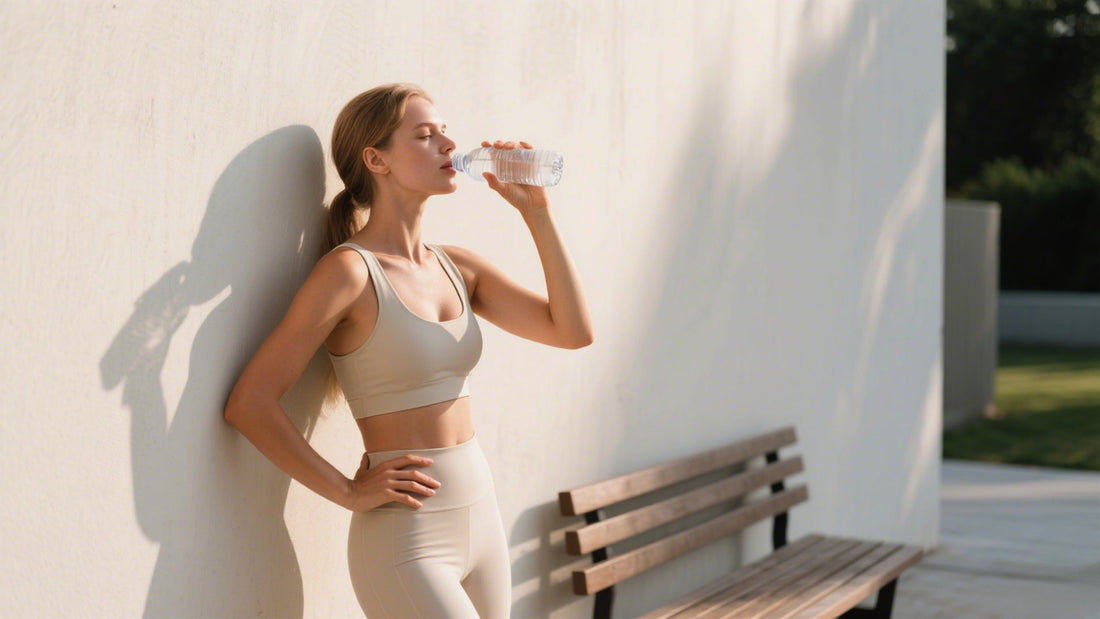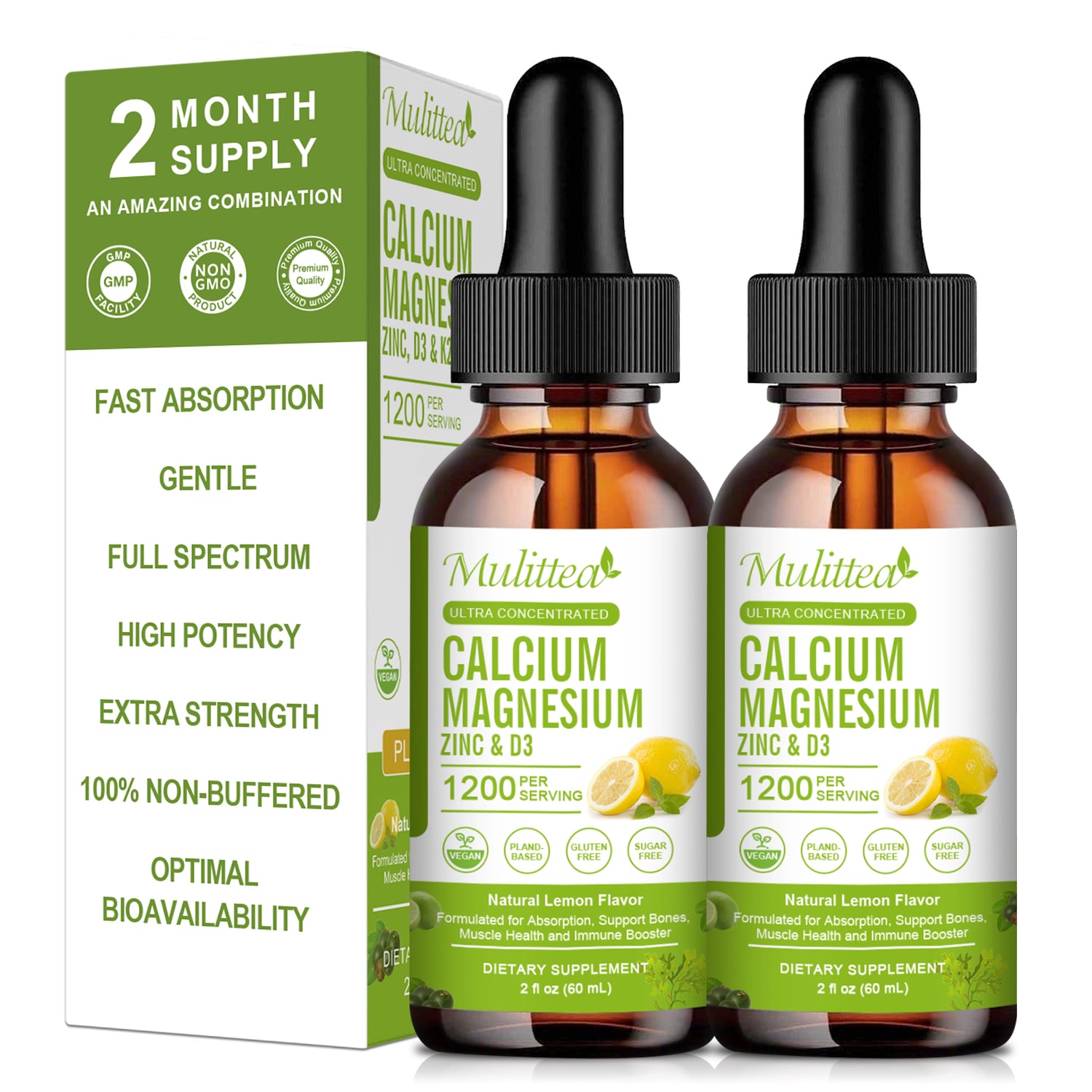
7 Signs You’re Dehydrated – And How to Stay Hydrated Fast!
Share
Are you feeling a bit off, maybe sluggish or just not quite right? You might be surprised to learn that many common discomforts can actually be traced back to something incredibly simple: dehydration. In our busy lives, it’s easy to overlook just how crucial proper hydration is for our bodies to function optimally. From supporting cellular fluid balance to powering your body’s essential electrolyte pumps, water plays a vital role in nearly every bodily process. This article will help you identify the subtle (and not-so-subtle) signs you’re dehydrated and equip you with practical, fast-acting tips to get back on track.
Understanding the Science of Hydration: Why Water is Your Body's Best Friend
Our bodies are mostly water – around 60% of an adult's weight, to be exact! This water isn't just sitting there; it's constantly working. Think of your body as a complex city, and water is the essential transport system, carrying nutrients to your cells and flushing out waste.
The Role of Cellular Fluid Balance
One of the most fundamental aspects of hydration is cellular fluid balance. Imagine your cells as tiny balloons, constantly exchanging water and nutrients with their surroundings. When you're adequately hydrated, there's a delicate balance of fluids inside and outside these cells. This balance is crucial for cellular function, nutrient absorption, and waste removal. When you're dehydrated, this balance is disrupted, affecting everything from your energy levels to your brain function.
The Power of Electrolyte Pumps
Beyond just water, tiny electrical charges in your body, called electrolytes (like sodium, potassium, calcium, and magnesium), are vital. These electrolytes help move water in and out of your cells and are crucial for nerve and muscle function. They work via what are often called electrolyte pumps, which are proteins in cell membranes that actively transport ions, maintaining the correct concentration gradients. Without enough electrolytes, these pumps can’t do their job efficiently, leading to issues like muscle cramps or fatigue. This is especially true when considering Why is it important to drink electrolyte water in the summer? as you lose more electrolytes through sweat.
Signs You’re Dehydrated: What to Look For
It's not always just feeling thirsty. Dehydration can manifest in various ways. Pay attention to these common indicators:
1. Persistent Thirst & Dry Mouth
This is the most obvious sign, but sometimes we ignore it. If your mouth feels sticky or dry, your body is actively telling you it needs water. Don’t wait until you’re parched to drink.
2. Fatigue & Low Energy
Feeling unusually tired, even after a good night's sleep? Dehydration can significantly impact your energy levels. Your body has to work harder to perform basic functions when it doesn't have enough fluid, leading to exhaustion.
3. Dark Urine & Reduced Urination
A quick check of your urine color can be a great indicator. If it's dark yellow or amber, you likely need to drink more water. Healthy urine should be pale yellow, almost clear. Also, if you’re not urinating as frequently as usual, that's another red flag.
4. Headaches & Dizziness
Dehydration can lead to a reduction in blood volume, which means less blood flow to your brain. This can trigger headaches and feelings of lightheadedness or dizziness.
5. Muscle Cramps & Weakness
Ever experienced an unexpected charley horse during a workout or even just going about your day? Electrolyte imbalances caused by dehydration can lead to muscle cramps and general muscle weakness. You might be wondering, can dehydration cause stomach pain or dehydration and abdominal cramps? Yes, it absolutely can, as your digestive system needs adequate fluids to function properly.
6. Dry Skin & Lack of Elasticity
Your skin needs moisture to stay healthy and plump. If you pinch the skin on the back of your hand and it takes a while to return to normal, you might be dehydrated. Dry, flaky skin is also a common sign.
7. Irritability & Difficulty Concentrating
Believe it or not, even mild dehydration can affect your mood and cognitive function. If you find yourself feeling unusually irritable, foggy, or struggling to focus, try drinking a glass of water.

Fast Fixes: How to Rehydrate Quickly
Once you recognize the signs, the good news is that rehydrating doesn't have to be complicated. Here are some quick and effective ways to boost your fluid intake:
Drink Water Smartly:
Not Just How Many Bottles of Water a Day
Don't just chug a huge amount of water all at once; it's better to sip consistently throughout the day.
- Set Reminders: Use an app or simply set alarms on your phone to remind you to drink.
- Keep Water Accessible: Always have a water bottle nearby – on your desk, in your car, or in your bag. This answers the question of how many water bottles should I drink – always have one ready!
- Infuse Your Water: If plain water is boring, add slices of fruit (lemon, cucumber, berries) or herbs (mint) for a refreshing twist.
Embrace Electrolyte-Rich Options
Water is great, but sometimes your body needs a little extra help, especially if you’ve been sweating a lot or feeling under the weather. This is where electrolytes come in. Instead of sugary sports drinks, opt for more natural sources or convenient supplements.
- Coconut Water: A natural source of potassium and other electrolytes.
- Oral Rehydration Solutions: These are specifically designed to replenish lost fluids and electrolytes.
- Easy-to-Take Gummy Supplements: For a simple and tasty way to supplement essential minerals, consider chewable forms. Mullitea offers Calcium Magnesium Gummies and Potassium Magnesium Gummies that are not only easy to take but can also help support electrolyte pumps and overall cellular fluid balance. Their fruity flavors make them a convenient addition to your daily routine, especially when thinking about how much water should we drink in the summer? and the importance of hydration during summer.
- Convenient Liquid Drop Supplements: Another highly absorbable option for targeted mineral support is liquid drops. Mullitea's Magnesium Drops and Calcium Magnesium Drops can be easily added to water or other beverages for a quick and effective boost of vital nutrients that contribute to muscle function, nerve health, and overall hydration.
Hydrating Foods & Beverages
Many foods are rich in water content. Load up on:
- Fruits: Watermelon, strawberries, oranges, grapefruit, and cantaloupe are all excellent.
- Vegetables: Cucumber, lettuce, celery, and bell peppers have high water content.
- Soups & Broths: These can be a comforting and hydrating option, especially if you’re feeling unwell.
Stay Hydrated
Beyond Just Drinking
What are some tips for staying hydrated in hot weather?
- Dress Appropriately: Wear light, loose-fitting clothing to help your body cool down.
- Seek Shade: Limit direct sun exposure, especially during peak hours.
- Plan Activities Smartly: Avoid strenuous exercise during the hottest parts of the day.
What should I do to avoid a heat stroke?
Heat stroke is a serious medical emergency. If you or someone you know experiences a very high body temperature, hot, red, dry or damp skin, confusion, or loss of consciousness, seek immediate medical attention. To prevent it, stay hydrated, avoid overheating, and know your limits.
Why do we drink more water in summer? and Why do we feel the summer season so thirsty?
During summer, higher temperatures lead to increased sweating, which is your body's way of cooling down. This accelerated fluid loss makes you feel thirstier and increases your need for water and electrolytes. It's why the importance of hydration during summer is highlighted.
What should I know about heat-related illness?
Heat-related illnesses range from mild heat cramps to severe heat stroke. Symptoms can include heavy sweating, muscle cramps, dizziness, nausea, and headaches. Always prioritize staying hydrated and cool to prevent these conditions.
The Bottom Line on Hydration: Is Drinking 64 oz of Water a Day Good?
While 64 oz of water a day is a good general guideline for many adults, individual needs vary based on activity level, climate, and overall health. The most important thing is to listen to your body and recognize the signs you’re dehydrated.
Prioritizing hydration is one of the easiest and most impactful ways to boost your overall well-being. By understanding the subtle cues your body sends and taking proactive steps to rehydrate, you'll feel more energetic, think more clearly, and simply feel better every day. Remember, consistency is key when it comes to hydration, so make it a habit, not just a reaction!

